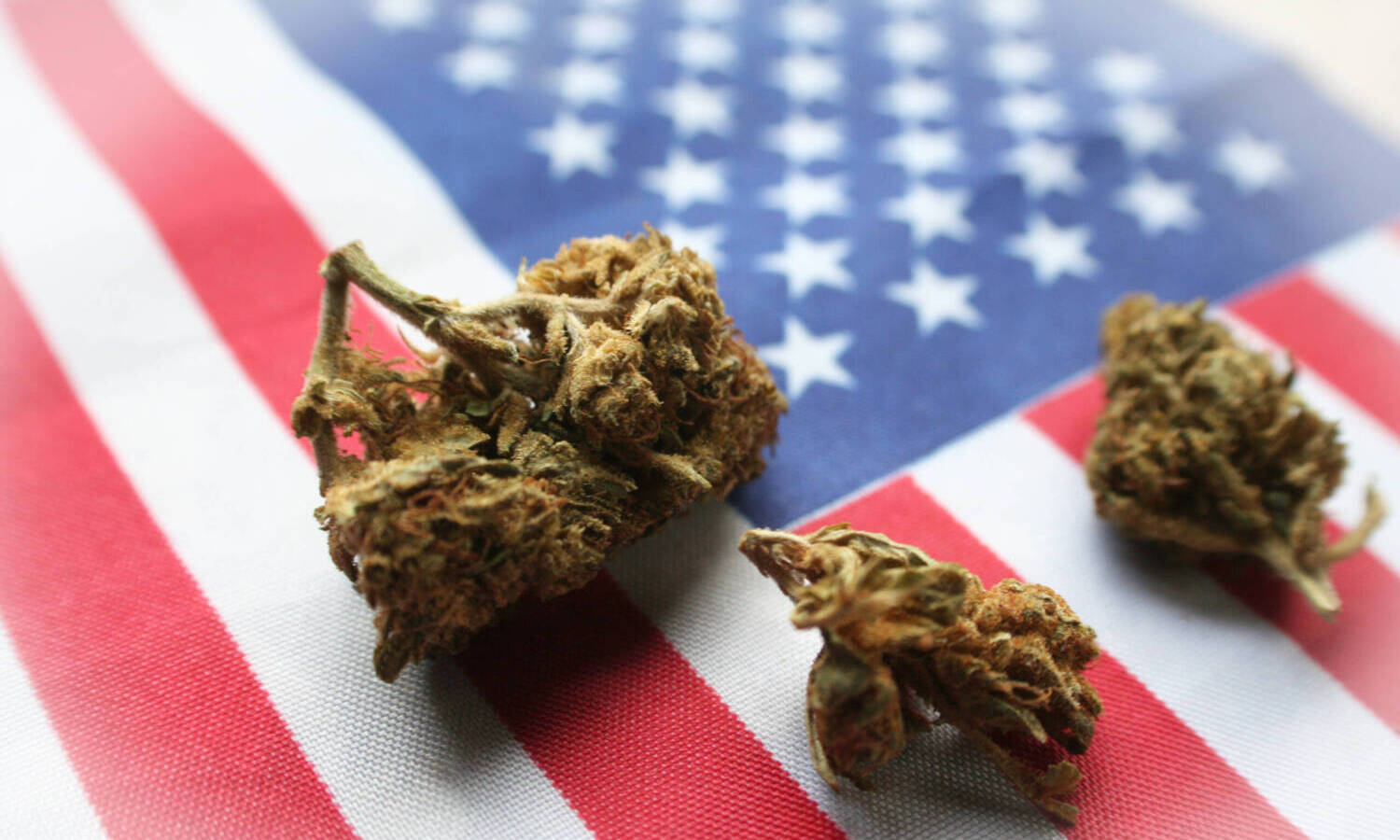
How did Delta-8 THC become legal across America?
On May 19, a federal court in California ruled that the federal legalization of hemp through the 2018 Farm Bill removed restrictions on several cannabinoids as well as delta-8-THC.
Delta-9-THC, often referred to as THC, is the most well-known psychoactive cannabinoid in cannabis and remains illegal nationwide. It is classified as a Schedule I controlled substance along with heroin, peyote and methaqualone. In comparison, delta-8 THC is generally found in minute amounts in the marijuana plant.
However, modern production and cultivation techniques allow smaller cannabinoids to be refined and concentrated into consumer products. With that, delta-8 THC compounds have become increasingly popular over the years, particularly in cannabis-legalized states.
Similar to delta-9-THC, delta-8-THC also has psychoactive properties. However, users claim that the experience is typically more suppressed and has mild side effects compared to delta-9 THC. Although some cannabis advocates and several health experts have confirmed that little is known about the possible risks and health effects of delta-8-THC.
For its part, the Ninth Circuit Panel noted that while delta-8-THC has intoxicating and psychoactive properties, it does not fall under the federal law hemp definition and is therefore legal.
According to one of the judges on the three-judge panel, Judge D. Michael Fisher, he wrote that regardless of the decision to legalize delta-8-THC, the court will not change its ruling for Congress. All three judges who rendered the verdict were appointed by Republican presidents. According to Fisher, if a loophole was inadvertently created by lawmakers who didn’t plan to legalize delta-8-THC, it’s the responsibility of Congress to fix such a mistake.
The controversy
The Ninth Federal Court’s ruling stems from a controversy over apparent copyright and trademark infringement that hinged on the legality of delta-8-THC. The controversy began when AK Futures, a company that manufactures vape products and e-cigarettes, accused Boyd Street Distro of manufacturing bogus versions of its products containing delta-8 THC.
According to the Complaint’s data, it has been demonstrated that Delta-8-THC products manufactured by AK Futures are lawful under the Farm Act and therefore eligible for trademark protection. On the other hand, Boyd Street alleged that the products in question were purchased by a person claiming to be the authorized dealer of AK Futures. AK Futures then claimed its entire stock for the same product had sold out and would not be selling the brand any time soon.
According to the San Francisco Chronicle, Boyd Street attorney Darrel Menthe argued that no evidence had been presented that Congress had any plans to legalize delta-8-THC. If substances containing cannabinoids are considered legal, state and state governments are likely to regulate cannabis products to be safe to use and not promoted to children.
Darrell Menthe further added that Boyd Street has no plans to appeal the court’s decision.
NORML California Director Dale Gieringer confirmed in an interview with the Chronicle that from a policy perspective, simply legalizing delta-9-THC would be more ideal. He believes that delta-9-THC is better understood than delta-8-THC due to the extensive studies and research on cannabinoids that have been conducted for decades.
RELATED: Delta-8 THC suffers from misnomers — misnomer or mismanagement?
Photo by RODNAE Productions via Pexels
consequences of the court decision
With the 2018 Farming Act enacted, delta-8 THC and several smaller cannabinoids now find themselves in something of a legal gray area. While many companies in the cannabis industry argue that the products are legal, lawmakers in many states believe otherwise.
Now the controversy has spread to the federal level. To that end, the Food and Drug Administration (FDA) released its first series of warning letters earlier this month. The letters were issued to cannabis companies in connection with the alleged illegal sale of substances containing delta-8-THC.
Before the Warning Letters, the FDA had initially published a notice to warn consumers about such products. This approach is similar to how the FDA has sent warning letters to several companies for unlicensed advertising of CBD.
Currently, FDA regulations do not allow the advertising of cannabinoids in the food supply. However, cannabis advocates and lawmakers have been pressuring the agency to change its laws to allow CBD commercialization ever since hemp was legalized at the federal level.
As of today, both parties now have congressional lawmakers pushing the FDA to create new regulations for CBD. dr Robert M. Cliff, the FDA commissioner, reiterated during a hearing before the US House of Representatives committee that he would need much support from Congress to make such a development possible.
according to dr Robert M. Cliff, on the food side of the drug side, current councils will not be ready to provide what is needed to achieve such a goal. Meanwhile, since late last year, the Drug Enforcement Administration has been signaling that delta-8-THC is legal.
In the same last year, the Texas state government declared Delta-8 illegal. This was a development that was challenged by many opposition figures in court, seeking a stay of the proposed ban by state enforcement.
RELATED: What it’s like to get high from delta-8 THC versus regular THC
 Photo by Darren415/Getty Images
Photo by Darren415/Getty Images
Conclusion
The controversy between AK Futures and Boyd Street has provided sufficient clarity on the legality of e-cigarettes and delta-8-THC products under federal law. It proves that federal courts don’t pay much attention to the loopholes in psychoactive hemp derivatives not found in the 2018 Farm Bill.
Regardless of your feelings about delta-8-THC, however, this is a major turning point in the history of marijuana legalization.
This article originally appeared on Cannabis.net and has been republished with permission.

Post a comment: